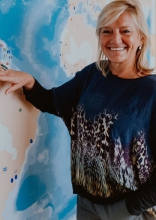
The science is clear – the ocean is facing unprecedented threats as a result of human activities. Its health and ability to sustain life will only get worse as the world population grows and human activities increase. If we want to address some of the most defining issues of our time such as climate change, food insecurity, diseases and pandemics, diminishing biodiversity, economic inequality and even conflicts and strife, we must act now to protect the state of our ocean.
The UN Ocean Conference (27/6 – 1/7 Lisbon), the largest and most important of its kind, will seek to propel the much needed science-based innovative solutions aimed at starting a new chapter of global ocean action in order to mobilize action to conserve and sustainably use our ocean and marine resources. At the UN summit, Member States will be asked about their commitments: what will be promised on paper, and what will they mean in practice? At the same time, work will also be done on the mechanism to make these commitments legally binding.
The Conference is set based on the recognition that our understanding of the ocean and its contribution to sustainability largely depends on our capacity to conduct effective ocean science - through research and sustained observations, supported by adequate infrastructures and investments. Solutions for a sustainably managed ocean involve green technology and innovative uses of marine resources. They also include addressing the threats to health, ecology, economy and governance of the ocean - acidification, marine litter and pollution, illegal, unreported and unregulated fishing, and the loss of habitats and biodiversity.
Politicians, business leaders and scientist from all over the world attend the conference. The Flemish scientific community is represented by dr. Ann-Katrien Lescrauwaet, director of international relations of the Flanders Marine Institute (VLIZ). Flanders has a diverse and world-renowned expertise in marine research. No less than 123 marine research groups are active in 24 different research disciplines. Flemish scientists are for instance working on the Sea Level Station Monitoring Facility, a UNESCO platform that provides real-time data from all tide gauges worldwide, that allows to predict with great accuracy where, when and how strong a tsunami will hit. Flemish marine researchers are also involved in the World Register of Marine Species (WORMS), a global register of animals that started from VLIZ and progressively up scaled.
If you would like to learn more about the international maritime policy, we refer to the Compendium theme text on Integrated maritime policy. If you want to learn more about the marine research landscape of Belgium, we refer to the yearly inventory of VLIZ (Dutch).